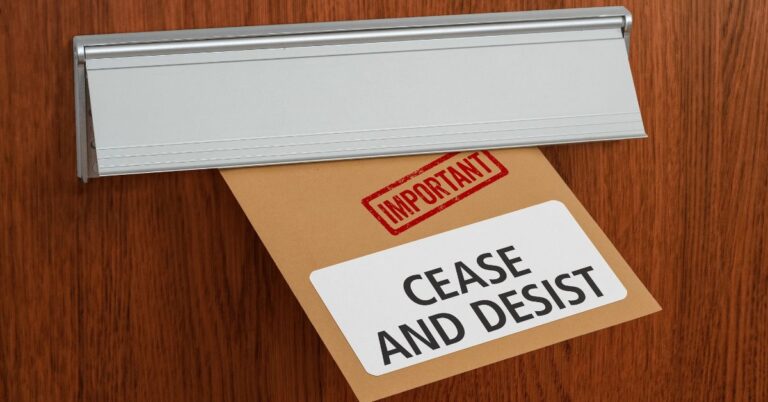Did your former employer send you a cease-and-desist letter?
Employers often send former employees a cease-and-desist letter as a warning to stop certain harmful actions. These letters may often threaten legal action or require you to contact your former employer.
1. What Is A Cease-And-Desist Letter?
A cease-and-desist letter often outlines your employer’s opinion regarding your wrongful action. It may allege that you:
A. Breached a contract
B. Took your employer’s property
C. Breached a non-compete or non-solicitation restriction
D. Misappropriated your employer’s trade secrets
E. Committed defamation, slander, libel, or another tortious act
2. Contact An Attorney Right Away
Cease-and-desist letters often include very time-sensitive matters. Before you take any action, speak with an employment attorney to understand your rights and options. An employment attorney can help you evaluate your situation and develop an appropriate strategy.
3. Don’t Ignore it
A cease-and-desist letter often signals that your former wants to resolve a matter without escalating it to litigation. If you ignore it, your employer may use it as evidence that you were on notice of a harmful action and you didn’t correct it. Your employer may also take your silence as a sign that they need to file a lawsuit.
Bottom Line: If you receive a cease-and-desist, don’t wait to act.
Remember that each negotiation is unique, and it’s crucial to tailor your approach based on your specific circumstances.
Call Attorneys who are knowledgeable in handling Cease-and-Desist Letters
The lawyers at the Maura Greene Law Group can help you understand, review, and respond to a cease-and-desist letter from your employer.
Contact us at 617-936-1580 or email us at mglgstaff@mauragreenelaw.com
The Not So Fine Print:
Every case has its own unique facts. Before you take any action, you should contact an employment lawyer and get advice on your own situation. We can’t provide legal advice here and this isn’t intended as legal advice. Keep in mind that it is best, if possible, to establish a relationship with an attorney before a workplace issue turns into a full-blown crisis.

